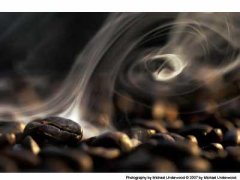Digitize the production process of espresso

Italian Coffee University (China)
Let's digitize the production process of espresso. A cup of high-quality espresso requires 6-7 grams (about 50) of Arabica coffee beans, ground into a fine powder about 1 micron in diameter, flow through water at a temperature of 90 degrees Celsius, about 30 cubic centimeters (30cc) at 9 atmospheric pressure, and extract about 30cc coffee liquid in no more than 30 seconds.
The dark liquid, covered with a layer of brown grease (crema), contains 1500 chemicals (800volatile and 700soluble), forming an extremely complex and subtle fragrance. Like wine, drinking espresso coffee is a complex sensory feast that requires "seeing-smelling-drinking" steps and attentively feeling the slightest changes. Before the entrance, first observe the appearance and color of the coffee, and then smell its aroma, and finally taste the consistency of the juice and the entrance throat rhyme. Espresso must be finished as soon as possible after production, because many ingredients will decompose due to oxidation or lower temperature, thus losing the original flavor. Of the more than 1000 aromas that can be identified, roasting aromas from the conversion of sugar in coffee beans, cocoa with a hint of vanilla, flower-like aromas and sweetness similar to fresh fruit are the most easily identified.
Espresso is the perfect coffee drink. In terms of quality, espresso has a thicker texture than water-drop coffee, and contains higher dissolved matter per unit volume than water-drop coffee, because of the short-time and high-pressure brewing process, the fragrant oil is also more abundant than other brewing equipment. At the same time, the short quenching time makes espresso contain less caffeine. Both of these make espresso a favorite of countless experienced coffee lovers.
Important Notice :
前街咖啡 FrontStreet Coffee has moved to new addredd:
FrontStreet Coffee Address: 315,Donghua East Road,GuangZhou
Tel:020 38364473
- Prev

Basic knowledge of Coffee Culture caffeine has a medical effect on the body
Coffee contains caffeine, which excites the sympathetic nerves after entering the body, thus eliminating drowsiness, improving blood circulation, and the body also feels warm and does not feel tired, so it has a refreshing effect. However, when the sympathetic nerve is stimulated and excited, it has a negative effect on appetite, that is, appetite will be reduced, so drinking coffee before a meal will not want to eat. In addition, due to irritation of the stomach
- Next

Espresso-freddo-Ice Italian extra-strong
Espresso-freddo-ice espresso All coffee drinks actually evolved from espresso. At the event, baristas from illy coffee university demonstrated coffee drinks specially launched for this summer. Espresso Freddo is the easiest thing to do at home: Cool double espresso with ice cubes and pour into a shaker, add ice cubes,
Related
- Beginners will see the "Coffee pull flower" guide!
- What is the difference between ice blog purified milk and ordinary milk coffee?
- Why is the Philippines the largest producer of crops in Liberia?
- For coffee extraction, should the fine powder be retained?
- How does extracted espresso fill pressed powder? How much strength does it take to press the powder?
- How to make jasmine cold extract coffee? Is the jasmine + latte good?
- Will this little toy really make the coffee taste better? How does Lily Drip affect coffee extraction?
- Will the action of slapping the filter cup also affect coffee extraction?
- What's the difference between powder-to-water ratio and powder-to-liquid ratio?
- What is the Ethiopian local species? What does it have to do with Heirloom native species?

